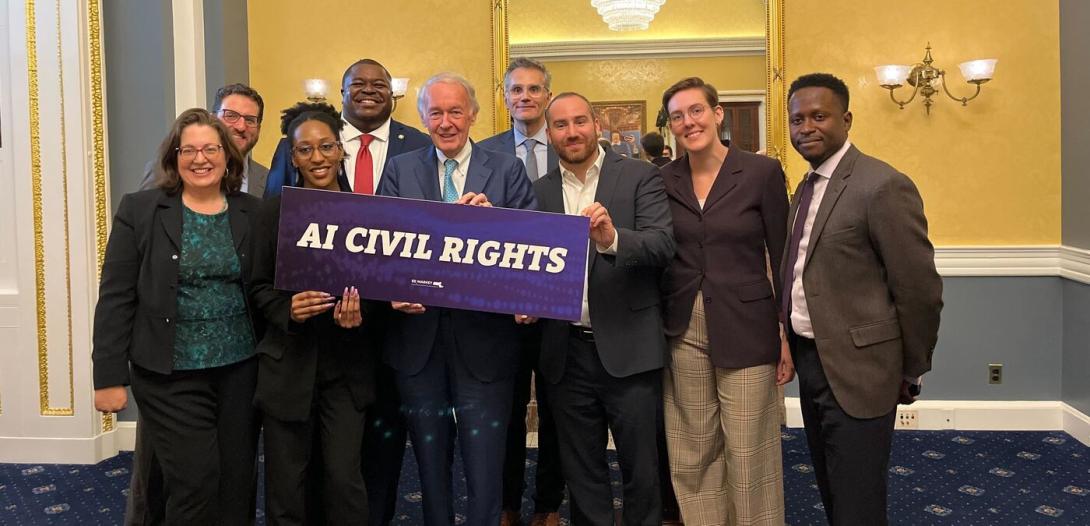How a New Bill Would Help Stop AI Discrimination

Free Press Action staff and allies with Sen. Ed Markey (center) at the introduction of the Artificial Intelligence Civil Rights Act
Artificial intelligence has rapidly entered every part of our lives. There’s a lot of hype about AI. There’s a lot of chatter. There’s a lot of fear, too.
But too often, we’re asking the wrong questions. The important question isn’t whether AI is inherently bad or good, but who is going to benefit?
Is AI going to make our lives easier or is it going to be used to exacerbate inequality, exploitation and discrimination? Who’s going to be at the table when these decisions are made? Who’s going to be in control? And who’s going to be held accountable?
We know this much: AI is a civil-rights issue. Algorithmic decision-making is a civil-rights issue. Data gathering is a civil-rights issue.
But civil-rights laws haven’t caught up to the era of AI and big data. That needs to change.
Legislation that would curb AI discrimination
On Sept. 24, I joined Sen. Ed Markey (D–Massachusetts) and civil-rights leaders to introduce the Artificial Intelligence Civil Rights Act — landmark legislation that would prohibit the use, sale or promotion of AI systems that discriminate on the basis of race, ethnicity, sex, gender identity, sexual orientation, religion or disability.
Markey said he crafted the bill “to ensure that the AI Age does not replicate and supercharge the bias and discrimination already prevalent in society today.”
“Make no mistake: We can have an AI revolution in this country while also protecting the civil rights and liberties of everyday Americans,” he said. “We can support innovation without supercharging bias and discrimination, and we can promote competition while safeguarding people’s rights.”
Free Press Action has endorsed the legislation, alongside groups including the Lawyers’ Committee on Civil Rights Under Law, the Leadership Conference for Civil and Human Rights, UnidosUS, Fight for the Future and the ACLU.
This bill recognizes that we must evaluate and investigate AI and algorithmic decision-making tools for bias and harm before they go on the market and before they’re infused in the most important, sensitive and private corners of our lives — from access to education and housing, to health care and insurance, to life-or-death decisions made by the courts, police and immigration officials.
This legislation would require those designing and deploying AI tools to conduct audits for potential harms and publicly share the results. For too long, there has been no public input or recourse when these hidden systems cause real-world problems.
The AI Civil Rights Act takes a major step toward addressing these urgent issues and empowering federal regulators to keep up with these evolving technologies. Free Press Action is pushing Congress to enact it into law.
Help Free Press Action keep up the fight against AI abuses: Donate today.